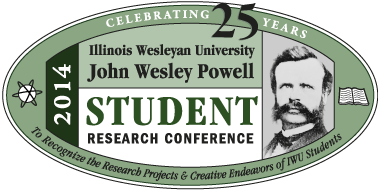Volunteer Experiences with People with Autism
Submission Type
Event
Expected Graduation Date
2014
Location
Center for Natural Sciences, Illinois Wesleyan University
Start Date
4-12-2014 2:00 PM
End Date
4-12-2014 3:00 PM
Disciplines
Psychology
Abstract
Given that people with autism spectrum disorder may face increasing social isolation as they age (Orsmond, Shattuck, Cooper, Sterzing, & Anderson, 2013; Eaves & Ho, 2008), there is a need to establish a stronger system of advocates who can assist in facilitating the social integration of this growing community (Crabtree, 2011). Because volunteerism in college predicts future engagement in similar volunteer and career activities (Astin, Sax, & Avalos, 1999; Tomkovick, Lester, Flunker, & Wells, 2008), volunteering with people with ASD may promote advocacy for and social integration of people with ASD. Using a quasi-experimental design, we investigated the experiences of college students and alumni (n=88) who volunteered with one of three different populations: adults with autism, adults with intellectual disabilities, and a variety of community members in a Midwestern city. There were no significant differences in students’ perceptions of the impact of their volunteer experiences on their self-esteem, self-efficacy, or mood. However, students who volunteered with people with autism or intellectual disabilities were significantly more likely to indicate greater understanding and awareness as well as future willingness to engage in advocacy activities for those populations. These findings support the idea that college volunteerism may be an avenue to future advocacy in the disabilities community.
Volunteer Experiences with People with Autism
Center for Natural Sciences, Illinois Wesleyan University
Given that people with autism spectrum disorder may face increasing social isolation as they age (Orsmond, Shattuck, Cooper, Sterzing, & Anderson, 2013; Eaves & Ho, 2008), there is a need to establish a stronger system of advocates who can assist in facilitating the social integration of this growing community (Crabtree, 2011). Because volunteerism in college predicts future engagement in similar volunteer and career activities (Astin, Sax, & Avalos, 1999; Tomkovick, Lester, Flunker, & Wells, 2008), volunteering with people with ASD may promote advocacy for and social integration of people with ASD. Using a quasi-experimental design, we investigated the experiences of college students and alumni (n=88) who volunteered with one of three different populations: adults with autism, adults with intellectual disabilities, and a variety of community members in a Midwestern city. There were no significant differences in students’ perceptions of the impact of their volunteer experiences on their self-esteem, self-efficacy, or mood. However, students who volunteered with people with autism or intellectual disabilities were significantly more likely to indicate greater understanding and awareness as well as future willingness to engage in advocacy activities for those populations. These findings support the idea that college volunteerism may be an avenue to future advocacy in the disabilities community.


